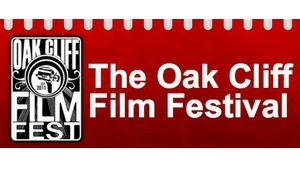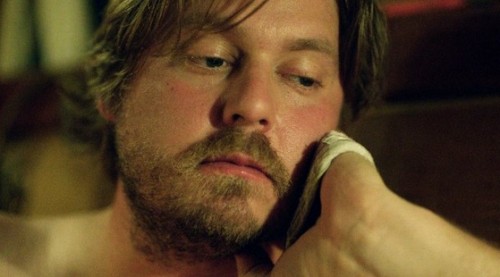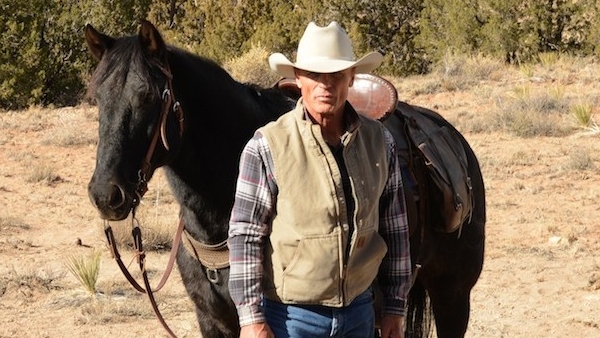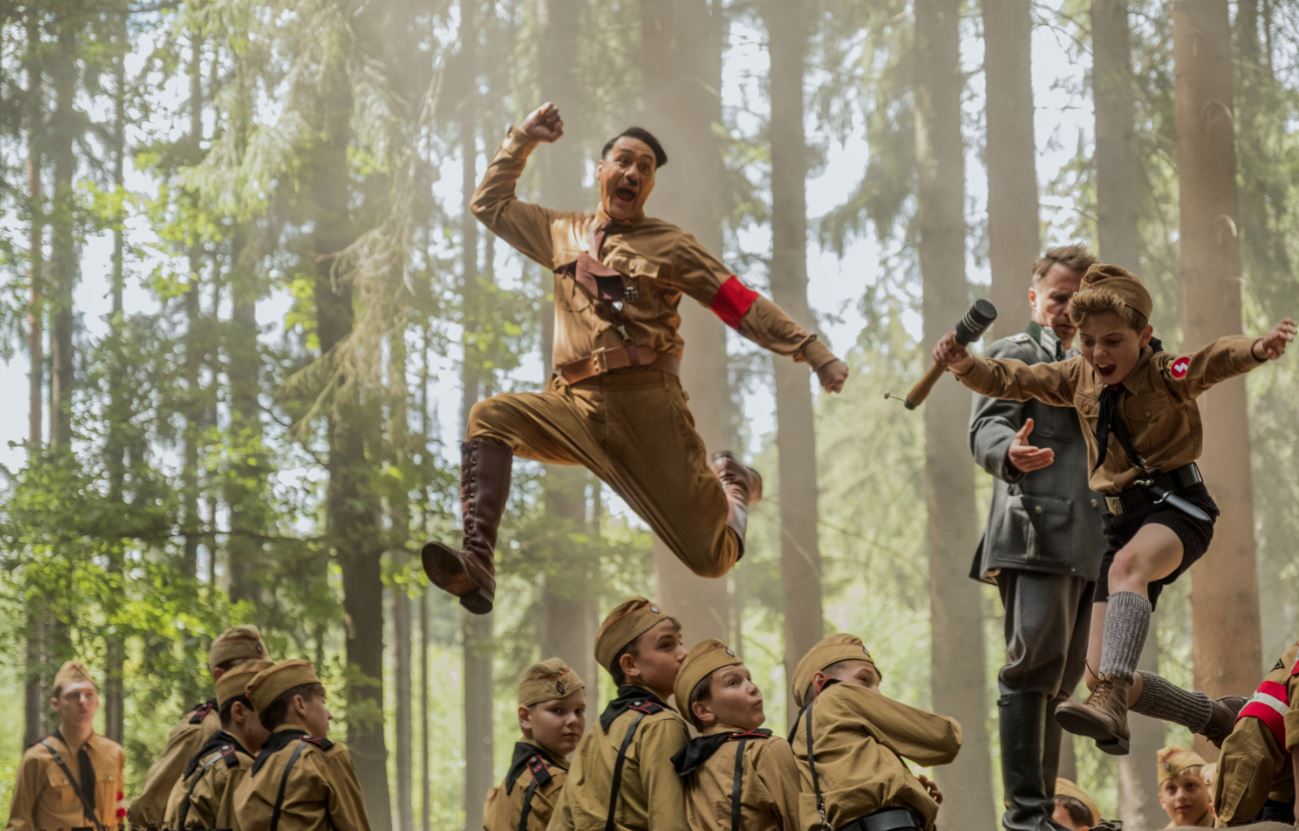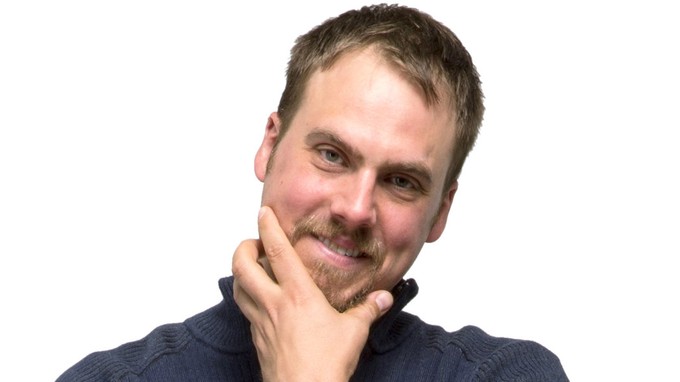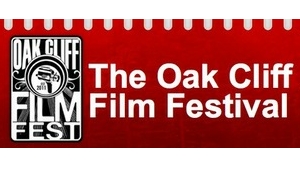 Three of the films in the Oak Cliff Film Festival were recently produced by Mike S. Ryan‘s production company Greyshack Films. Go,See,Talk got the chance to sit with him to talk about them and pick his brain on all things film related.
Three of the films in the Oak Cliff Film Festival were recently produced by Mike S. Ryan‘s production company Greyshack Films. Go,See,Talk got the chance to sit with him to talk about them and pick his brain on all things film related.
————————————————————————————————————————–
– Mike, we’re excited to have you on board and appreciate you making time to talk with us. These three films, The Comedy, Think of Me and The Turin Horse are all quite different in terms of style, narrative and production, and yet they all deliver outstanding results. What would you say makes these films, and the others that you’ve worked on, stand out above the rest? What do you look for in a script, and is some of the decision based on the directors or actors involved?
I mean one thing that the three films have very much in common is that they value a formal concept of predication above all else. There are films that are as much about how they are shot as they are about the themes. Obviously the “Turin Horse” is the most extreme example of a formalist film, but “The Comedy” and “Think of Me” are also films that, integral to their design, are formal decisions in terms of how they are shot and what the attitude of the writer/director is to the material, so all three of them are actually similar in that they reflect a very strong opinion and strategy that the director has about their subjects. They aren’t just simple naturalist films.
– Back in 2007, Variety named you as one of the top 10 producers to watch, and so far it seems like they were spot on with that prediction. You’ve really worked hard to support the independent film world, giving us films that have received top honors in the industry. Can you talk a little about your decision to develop independent films over high budget Hollywood productions and how you became involved in creating Greyshack Films? What do you feel the advantage is despite the challenges of lower budgets?
I’m driven by content. I’m not driven by the industry, nor am I even driven really purely by movies, and I just am not interested in films that are really solely designed around entertainment or distraction, so for me its not really an issue as to what my material is that I chose to produce. For me its really about trying to capture a really specific attitude about what it means to be American, or what it means to be alive in 2012, and Hollywood’s never really a place for that. It’s not a place to, in anyway, to challenge what it means to be a human, so for me if I didn’t make these independent films I wouldn’t be making these films; I would be in theatre.
Hollywood has nothing to do with what I do, or why I do it. I use Hollywood actors that have a skill, but what I do has nothing to do with what Hollywood does. Hollywood’s there to basically entertain or distract you from your life, and I’m trying to transform or enlighten your life. So they’re two completely different things.
– Switching back to these three festival films in particular, I read an interview with Bryan Wizemann about “Think of Me” where he commented on the fact that he felt one of the reasons it was hard to get people to financially support the film was because of the “unflattering (character) portrait.” I think the same thing could be said about Tim Heidecker’s character in “The Comedy.” These stories are depicting character and situations that could very easily be based on real people in American society today, and yet a lot of audiences tend to shy away from these portrayals. Why do you think some people are afraid of these kinds of true-to-life perspectives, and what makes you drawn to them?
Yes, I mean these are complicated characters who have flaws in them, and they’re not simple hero’s, and that’s all part of trying to make these films as close to our own lives as possible. I think we’re all flawed people who sometimes think they act for a certain reason and then discover that they had anterior motives, and I think in our own minds and our own story we’re Rambo or we’re Julia Roberts, but in reality, we are closer in many ways to these kinds of characters who act out of selfishness often. So again, that’s out of the desire to be as close to truth as possible, and truth is a complicated thing, and these are often the types of characters that are difficult for viewers to watch. Actors, as well, are often afraid of playing a character that may not be sympathetic, so in both “The Comedy” and “Think of Me,” the hero’s are designed for you to not simply identify with the character. You’re not supposed to just lose yourself and have the character just kind of take over your sense of self. The films are directed in such a way so that you engage in a dialogue with the characters behavior.
You’re somewhat judgmental but then you also beg to question your own judgment of that character, and that’s the narrative. So in both films the idea of the narrative is your evolving attitude toward the character. At first you may judge the character and say I’m better than this person, or this person’s an idiot; I would never act that way, or then you may be repulsed by the character. Then hopefully by the third act you’re actually starting to see the person as heroic because they’re struggling with a significant amount of flaws. Those are not easy things for most actors to embody because they want to be seen purely, as nice people, or sympathetic people. You know, everyone wants to be Tom Hanks. That’s why Hollywood’s idea of a difficult anti-hero is someone who is quirky, and not actually deeply flawed.
– What are some filmmakers that you would like to work with, that you haven’t had a chance to work with, and how does this play into the projects you chose to promote? Is it based on this at all, or more on the story itself?
For me, in part, it’s about seeing a film about somebody I really like, or it has a particular vision that is also trying to engage the film medium on a formal level. These tend to be by a lot of Europeans and foreigners. We don’t see too many American filmmakers really looking to engage with the film medium on a formal level. I’m very lucky with the people I’ve been able to work with like Rick Alverson and Kelly Reichardt, who are interested in engaging on a formal level with the medium.
– Are there certain filmmakers you feel an affinity with or particularly admire?
If I had to pick my favorite filmmakers t right now, I’d say Carlos Reygadas, from Mexico, Apichatpong Weerasethakul from Thailand. Those are some of the people that excite me, that I think I’d eventually like to make Amerian films with here, and try to get them to figure out a way to engage with American culture through their foreign sensibility.
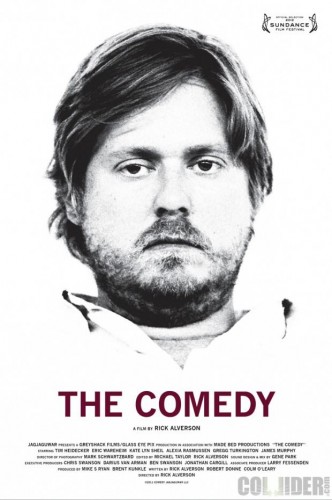
-I read your “Straight Talk” post in Filmmaker Magazine, and I’m interested in what you said about festival programmers and critics as gatekeepers, along with producers, and the need for these sources to maintain the goal of cultivating original ideas, despite the fact that they may be less marketable to mass culture. I think you touch on one of the great conundrums of being an artist in a contemporary, consumer-driven marketplace, which is how to get your work out there without selling out to the ones who can afford to make it happen. After all, at the end of the day, we do all have to feed ourselves.
What advice would you give to struggling independent filmmakers to fight against these challenges, and is that kind of one of your main ambitions in starting this independent film company, to allow these breakout stories and ideas to get made?
I think that anybody who thinks that they’re going to make a career for themselves or distinguish themselves by making a commercial film, it’s a major mistake. When you enter into a market place that makes a generic faceless project, and they do it well, that’s what Hollywood does. They make generic faceless romantic comedies that star Katherine Hegel, and for someone to think that they are going to enter into that by making that on an independent level is a tragic mistake that I see so often, and I’m so sad (when I see this).
The only way I think that somebody’s going to really distinguish themselves and create a career for themselves is by making bold, innovative work that reflects a really strong, uncompromising point of view, and that’s what the independent space is for, the independent space is not for people to make low budget versions of Hollywood generic entertainment. That’s not what it’s for – it’s for independent voices to rise up in opposition to generic corporate culture.
You know I work with a filmmaker in Dallas, Adam Donaghey, who is part of the film festival, and he and I produced a film by Chicago filmmaker, Frank Ross. Frank Ross is under thirty, works for TGIFriday’s as a waiter, and he’s made something like six feature films, all under 10,000. They’ve been at SXSW, so he has a body of work, you know? There’s no excuse for anybody to not be making great, personal, innovative cinema for next to no money. Will you make a career from it? Well maybe not now, maybe not the second one, maybe not the third one, but I do think that eventually people who have a body of work will be discovered and then they will be able to make it as a life choice, as career.
But you know, film is really no longer a medium that can sustain life and careers like it used to. Cinema has now become the equivalent to literary fiction and jazz, and a lot of people haven’t realized that yet, but that’s the reality. Unfortunately, once you see that, you recognize the fact that, like jazz and like literary fiction, it has to be tied to other avenues of income, whether that’s the academy, or some other form of creative endeavor that makes money.
As far as gatekeepers go, any film person who programs a film festival who is not going to take challenging work because they think it may alienate their audience is basically somebody who shouldn’t be booking a cinema and who shouldn’t be booking a festival. Those kinds of people really should not be anywhere near a programming schedule at a festival.
Festivals are there to provide alternatives to corporate culture, and if somebody is trying to program by second guessing people’s desire to see a romantic comedy, that’s just pathetic and they really shouldn’t be anywhere near a programming festival. Those kinds of people really upset me because that’s a position of power that’s being wasted by somebody who’s been aestheticized by corporate culture, and his mind has been taken over. So those gatekeepers also have a lot of responsibility to try to fight generic corporate culture to try to find films that are really personal deep reflections of what it means to be an American today.
– Well, that’s it for me. Do you have anything else you’d like to add?
I do think it’s unfortunate that there’s not a regular cinema where these films may be playing, so festival culture right now is really one of the only ways for a lot of us to see challenging film. So if you believe in cinema as a way of trying to be a reflection or a questioning of your own life, than these three films are definitely something that you will enjoy, but if you’re looking for a romantic comedy or a fun date movie, none of these will do that for you (laughs).
For more on the Festival, click this link to the main page for the Oak Cliff Film Festival as well as more in depth interviews on the official OCFF Tumblr page.
